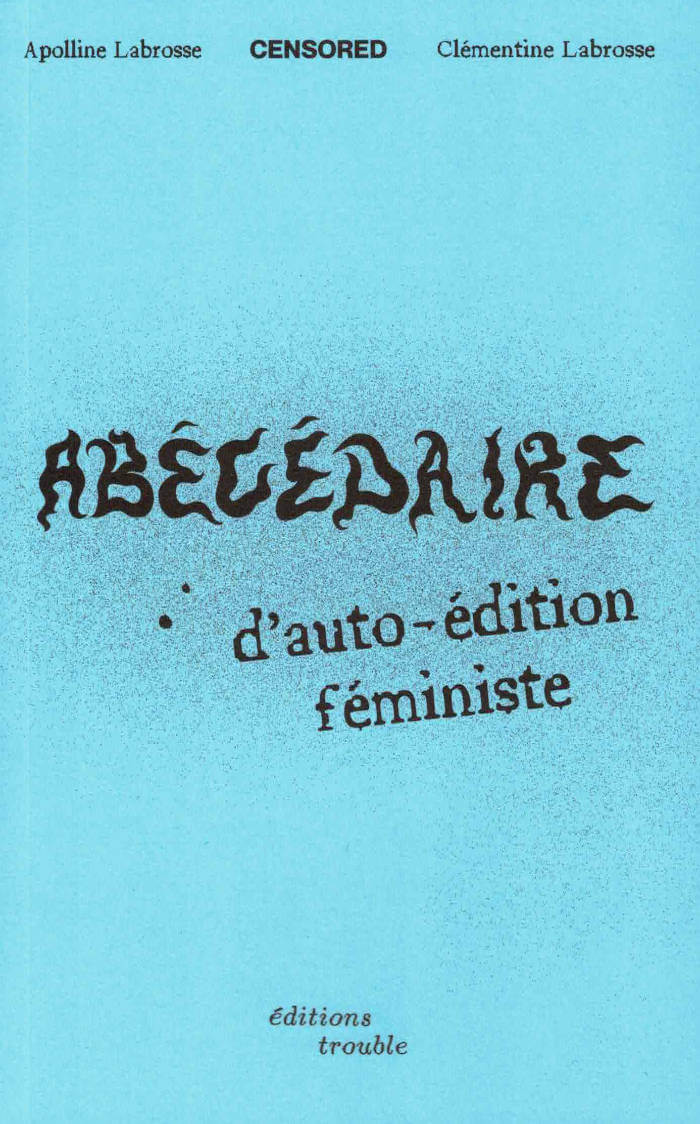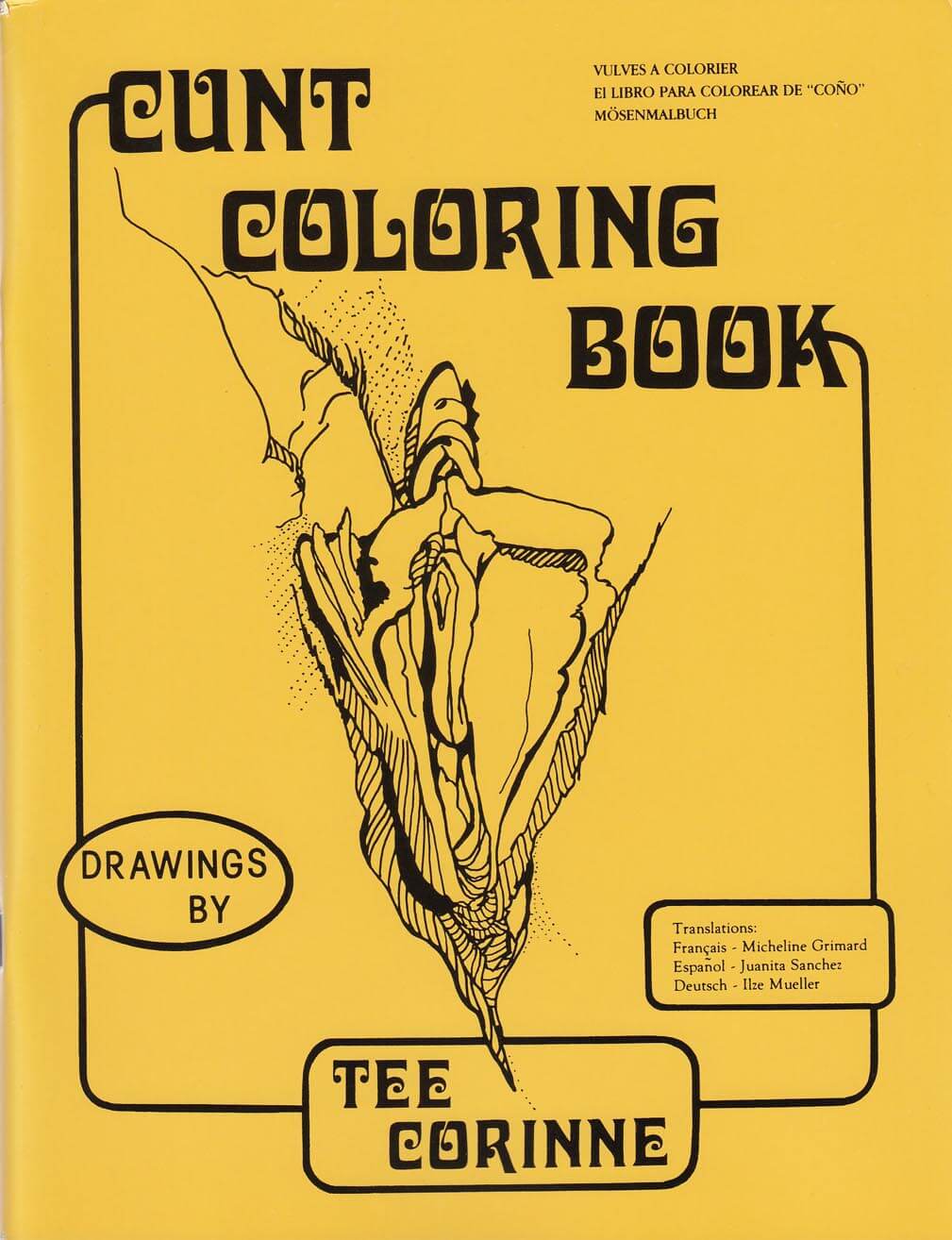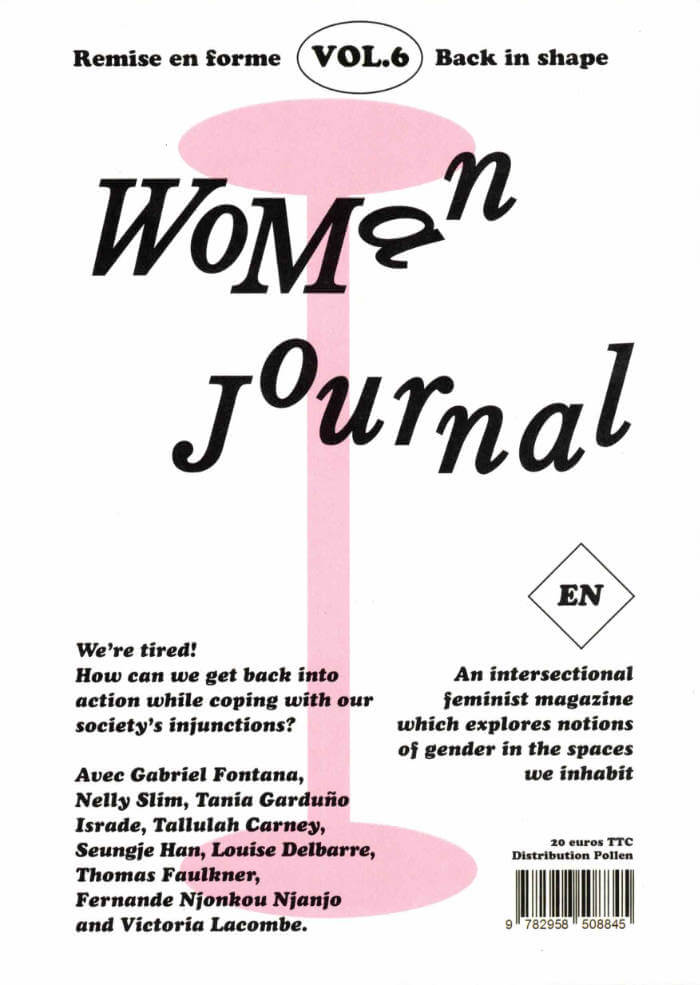
Abécédaire d’auto-édtion féministe
Combien rêvent de créer leur propre magazine ? Comment s’y prendre ? Pensé comme un guide, ce livre rassemble des outils, techniques, ressources, conseils et idées pour qui voudrait se lancer dans l’auto-édition ou l’édition. Révolutions éditoriales, graphiques et artistiques - il questionne en même temps l’existence d’une pratique féministe de l’imprimé autonome. Un abécédaire subjectif, joyeux et non exhaustif imaginé par les fondatrices autodidactes de la revue Censored - issu de leurs expériences et de leurs rencontres.
L’objectif de ce livre est de divulger et transmettre la méthode employée par Apolline et Clémentine Labrosse pour publier Censored, de la maquette Indesign à la promotion, en passant par l’organisation interne. Accessibilité, budget, droits, écriture inclusive, La Poste, graphisme, obligations légales… Au total, plus de 60 mots pour transmettre leur vision, hacks et autres stratagèmes. Ce livre est le fruit d’un constat : alors que nous sommes nombreuxses à voir dans l’imprimé un pouvoir révolutionnaire et un terrain d’expression créative et de lutte - difficile d’obtenir des informations pour apprendre à créer un zine, une revue soi-même, à diffuser massivement ou localement. L’édition ne se contente pas de délivrer une recette concrète, mais présente également des observations et réflexions après cinq années d’exploration des nombreuses stratégies visant à amplifier les voix en marge et à transformer les imaginaires : du mouvement des riot grrrls à la création de structures plus officielles.
Ce livre est le deuxième publié aux éditions trouble. Il a été relu et amélioré par Isabella Utria Mago, Elvire Duvelle-Charles et Maria Tasso.
Language: French




